Console
Security metrics and monitoring (Snyk & Security Scorecard)
with David Mytton & Jean Yang
S01 E05
—2021-08-05
Snyk (dependency security monitoring) & Security Scorecard (security health metrics), a devtools discussion with David Mytton and Jean Yang.

Episode notes
Episode 5 of the Console Devtools Podcast, a devtools discussion with David Mytton (Co-founder, Console) and Jean Yang (CEO, Akita Software).
Tools discussed:
- Snyk Open Source - Dependency security monitoring.
- Security Scorecard - Security health metrics.
Other things mentioned:
David: Welcome to the Console Devtools Podcast, a show all about interesting developer tools. I'm David Mytton, co-founder of Console.
Jean: And I'm Jean Yang, CEO of Akita Software, an API observability startup. In each episode, we'll discuss two interesting developer tools. We're keeping this to 15 minutes, so let's get started.
David: This week we are focusing on security and have two interesting tools to discuss from that space.
The first of these is Snyk Open Source, a security monitoring tool that helps you look at your dependencies and get a view of the security status of everything. It goes all the way down through your full dependency tree, so you can actually view the security posture, which means vulnerabilities inside the dependencies of your dependencies. It is quite interesting to get a view of everything you're actually relying on all the way down to the operating system level, and even some of the libraries that the operating system is using, like glibc. This gives you a proper view of everything that might affect your security.
The challenge, of course, is what are you going to do about that? The dependencies that you're actually pulling in to your application you can obviously update, or you can patch them or mitigate any vulnerabilities. If your code is relying on some underlying operating system issue that doesn't have a patch yet, or isn't going to be patched, the question is how are you actually going to approach that? One of the great things about Snyk is the flexibility it gives you.
One of my friends was a co-founder of Dependabot, which many of you will probably have you used through GitHub after the acquisition. My experience with these kinds of tools is through that, where you get all of these PRs open all the time, and Snyk just adds multiple options on top of that, so you can choose how you do the fixes. There's a CLI in beta that allows that to automatically remediate and fix all the vulnerabilities, which is pretty cool. It gives you much more visibility than something just like a pull request being opened. How do you see it, Jean?
Jean: I, like you, have only used Dependabot, and I've used it because it shows up in my GitHub repositories. I'll be honest, normally we don't do anything unless it tells us exactly what to do, which is pretty often, so that's pretty good.
I think Snyk has really found the right sweet spot between developer tools and security in that it's easy to install, it's a scanner, you don't have to do anything special to use it. The presentation is really helpful. In some way, it doesn't require deep security expertise. It shows you what's going on. I believe it does more than Dependabot does, unless I'm missing some dimension of Dependabot. and it's easy for developers to pick up. It's open source, so you can just use it.
I have the same question as you. First of all, why would someone use this dependency scanner over Dependabot, especially when Dependabot is inside GitHub already, and that's where we host all of our code. I would also love to see more than just dependency scanning, because I feel like the security dev tools companies, where they found a home, is license scanning for compliance, dependency scanning. I know that other things are harder. Code search is something harder, but Snyk has done such a good job in scanning containers, scanning dependencies that I wonder how much they can go beyond scanning for actionable things like automatic fixes and things like that.
David: It's really interesting because of the depth that it goes into. It's true if you just want pull requests opened up with an updated version string in your requirements file for Python or whatever the module system you're using, then Dependabot does the job. Snyk goes into the containers to look at the operating system packages that are underlying them, and it just gives you much more depth in understanding all of the things that your code is relying on.
It's a challenge in terms of what you have to do with them next. For example, I had to a really simple Nginx Docker container that was fully up to date as far as I was concerned, but Snyk revealed 169 issues, two of which were critical, but there were no fixes available. That's interesting if I want to mitigate them myself, but how do you actually approach dealing with that?
Jean: Right, so that's my question too because I feel like our infrastructure vulnerabilities aren't really something we have a lot of control over. You just either downgrade or wait for the next patch. What we worry about is, are we exposing data? Are we encrypting everything we should be? Things like that.
I wonder if it's sort of like getting a house inspection and people saying, "Well, the ground that your house is on is shaky," but you can't really get a new ground that your house is on, whereas you can get better windows and doors and things like that. That's something I'm curious about. Where in a developer's priorities or a security team's priorities do these bugs actually fall and is it possible to get to a higher set of priorities by going deeper somehow?
David: The relative security scoring was interesting to see because it helped me understand which issues I should focus on. Those 169 issues, most of them are not relevant to me, so highlighting just the two that were critical that I may want to think about was particularly useful. I also liked how it separates the dev dependencies from production, because although I do want to fix the dev vulnerabilities at some point, they're not in production, so I'm going to deprioritize those and focus on other things.
Jean: Right, that is helpful. My question, though, is are there 300 more relative priorities that are higher priorities than what you can scan for?
David: Exactly. So the question for the audience is what are you using to manage your dependencies, and do you use anything? How do you know when there are updates? Let us know on Twitter at the consoledotdev Twitter handle.
The second tool that we're talking about today is Security Scorecard. This is an open source project that has been released by the Open Source Security Foundation, which is part of the Linux Foundation. A lot of the development work has been done by Google. This provides you an assessment report on criteria that are documented and consistent, so that open source projects can start to adopt best practices across the industry. It makes it really easy to assess the security posture of all of the different projects that you rely on, but it's really designed for the owners of the open source projects to start putting policies in place to help protect their users.
One of the great things about this is it can scan GitHub, but it can also infer the dependencies from your NPM, PyPI, RubyGem package names, all that kind of stuff. As developers, we really need to get a lot better at understanding all the different components that we rely on in our software. There's certainly been instances recently of supply chain issues where malicious packages have appeared. So far the industry has got on with good luck and goodwill of developers, keeping things up to date. Most of the time people just end up blindly including dependencies from the different package repositories.
I see two central users for this. The users of libraries who actually just want to assess their supply chain risk, and then owners and the developers of the libraries who want to follow the best practices.
My question is who's deciding on these assessment criteria? Google's potentially a good arbiter of this, and they're accepting contributions to the project, but some of these may be onerous for very small projects or just individuals who are developing projects that turn out to be really successful.
Jean: I think that's great commentary, David. I think the answer to who's deciding often in companies seems like not many people at all. Back when Akita, my company, had more of a security focus, I used to interview a lot of security teams.
What they said was their own OKRs were often very fuzzy, and imposing metrics on the rest of the company about what security means. It was often up to them to define it, and depending on how strong the security team was, they either got the chance to define it a little bit or not at all. This was something I saw often.
I love this idea of this out in the open Security Scorecard determined by a major player like Google saying, "Hey, here's a set of practices that we figured out and we're giving you a workflow management tool for doing it." This could really lift the security posture of a lot of much smaller companies.
This is also related to something else I discovered with these security user interviews, which is companies that have something like a Security Scorecard really have made a lot more progress in influencing their developers to write secure code. If you have metrics, you can measure against those metrics and people are much more incentivized to optimize for them, especially if you gamify them.
This is a little bit my concern with our last tool, with the security scanning of the infrastructure. That's something you can do and something you can count down, but are we getting stuck in a local optimum? Something I really liked about Security Scorecard is it's counting down some things that you can't actually measure always in an automated way, but it does seem to be asking a lot of the right questions. For example, are code reviews in place, is static analysis in place, is fuzzing in place? Those aren't things that you can always just auto-detect, but they are nice metrics. They seem to make a lot of sense. Humans are very metric incentivized people, so I'm really into it.
One question I had: There's this interesting conversation around when is it good to use open source software for and when is it good to pay for it? It's really interesting that this tool is just open source, out in the open.
Will CISOs be incentivized to pick this up because it seems like it's much more of a goodwill thing, than a chief information security officer being able to point to it: "Well, there was a leak, but I used this open source scorecard system and everything was fine." What happens is a company making a scanner is taking on not just the role of scanning, but they're taking on the liability. In my view, this is why you end up with a lot of scanners that aren't actually that useful; but they're taking on some of the CISO's liability, where something like this is very useful, but it may not be taking on that much liability from a CISO perspective.
David: What do you think the responsibility of modern developers is for security? Tools like Snyk and Dependabot are putting developers in charge of merging pull requests and dealing with the vulnerability reports, basically moving away from the idea of having a security team that forces best practices on the organization and perhaps building a split like we've seen with DevOps and SRE. You have specialists SRE teams responsible for the platform and for reliability, and they might come in on almost like a consulting basis to advise engineers, but really...engineers, you build it, you run it, and now you've got to secure it.
Jean: Seeing security as something after the fact only made sense if you're securing infrastructure, not code. If you think about what happens in code and it is considered as security vulnerabilities, like injection attacks, memory leaks, using dependencies that you shouldn't be able to, a security team can't just shut that off because that breaks the functionality of your code.
Security is very much something that you can't just scan infrastructure for. Security is very much something that's tied to the code. Developers should have responsibility because that's where it falls. That's where I see the tension with modern tools, because pretty much all of the successful commercial security tools are scanning tools. Many of those security bugs that a developer has control over are deeper. I think this relationship needs to evolve, but I don't know what has to happen for it to do so.
David: Making security developer friendly is something we were talking about earlier, and I think that has been a big success of a Snyk and their approach to it. Rather than developers using a tool they don't actually want to use, this comes down to the developer experience across all tools. Making a product that developers actually want to use is probably one of the biggest barriers for any adoption of any kind of best practice.
Jean: Yeah, absolutely.
David: So if you're developing an open source project, tell us how you're managing the governance of things like pull requests and who's involved in the organization.
Jean: And tell us how you balance this with other priorities and what can help.
David: Alright, that's it for this week. Please tell a developer friend about the podcast if you enjoyed it, and remember to look at the weekly Console newsletter with the best tools and beta releases for developers at console.dev.
Jean: Please talk to us, tell us what you want to hear about @consoledotdev. You can also find me @jeanqasaur on Twitter, and you can also read more about my company @AkitaSoftware on Twitter as well.
David: Thanks. See you next week.


About the author
David Mytton is Co-founder & CEO of Console. In 2009, he founded and was CEO of Server Density, a SaaS cloud monitoring startup acquired in 2018 by edge compute and cyber security company, StackPath. He is also researching sustainable computing in the Department of Engineering Science at the University of Oxford, and has been a developer for 15+ years.


About the author
Jean Yang is CEO of Akita Software. Jean earned her PhD in software correctness and programming language design from MIT and then became a professor in computer science at Carnegie Mellon University before she started Akita to build the future of API observability.
About Console
Console is the place developers go to find the best tools. Each week, our weekly newsletter picks out the most interesting tools and new releases. We keep track of everything - dev tools, devops, cloud, and APIs - so you don't have to.
Subscribe to the weekly Console newsletter
An email digest of the best tools and beta releases for developers. Every Thursday. See the latest email